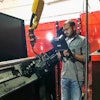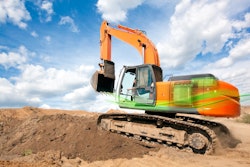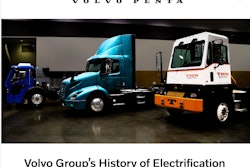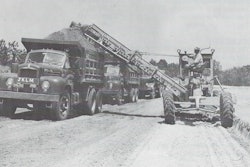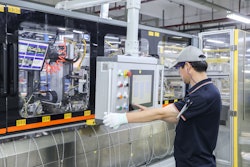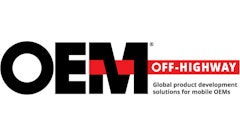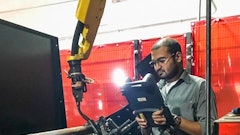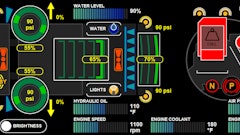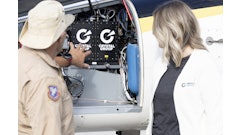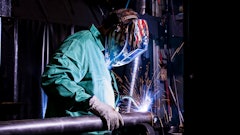
 Darren Tasker, vice president of industrial sales for Volvo Penta.Volvo Penta of America
Darren Tasker, vice president of industrial sales for Volvo Penta.Volvo Penta of America
1. What challenges most affected the mobile OEM landscape in 2024?
Sustainability and emissions reduction objectives continue to reshape the mobile OEM market and 2024 has been another pivotal year. OEMs and their partners recognize that no single solution can meet the industry’s complex demands. Instead, companies are locked in on making incremental progress through innovation and collaboration, integrating various solutions tailored to specific segments and customer needs.
At Volvo Penta, we’ve continued to steadily advance the development of new technologies in alignment with Volvo Group’s 2021 commitment to the Science Based Targets initiative. This includes achieving net-zero value chain greenhouse gas emissions by 2040. We are pursuing multiple strategies with the goal of becoming 100% fossil-free by 2050.
2. What will be the biggest challenge for OEMs and the industry in general in 2025?
Customers in the off-road industry have highly specific needs, and there is no one-size-fits-all solution when it comes to adopting new technology. The future is uncertain, so we must explore multiple solutions to find the perfect fit for each scenario. Transitions will occur in phases, driven by market demands, regulatory variations, fossil fuel availability and incentives.
Our collaboration with OEM Rosenbauer on their first electric fire truck exemplifies how addressing industry challenges requires a customer-centric approach. Beyond reducing carbon emissions, the project prioritized end-user concerns like firefighter comfort, retention and the ability to serve their communities – all critical ingredients to bring the “fire engine of the future” to life.
3. What factors should engineers and their companies consider when making decisions in the mobile OEM space in 2025?
It’s important to recognize that industrial combustion engines will still play a critical role in the transition to cleaner energy solutions. Companies can remain competitive by improving existing technologies while embracing alternative energy solutions. Diesel and new power systems will continue to coexist for the foreseeable future.
In the short term, we see renewable diesel as a drop-in-ready solution. Thus, Volvo Penta will keep advancing our engine range to run on alternative fuels – helping to reduce emissions in markets not yet ready for fully electric solutions.
4. Please highlight ONE recently introduced product from your company that meets a specific, pressing need in the mobile OEM space, and describe briefly how the product is uniquely designed to meet that need.
Volvo Penta recently entered the battery energy storage (BESS) sector through a partnership with Utility Innovation Group (UIG), a leader in decentralized and microgrid systems. This collaboration offers scalable energy storage solutions for both mobile and stationary charging applications, featuring high-energy-density and high-power battery systems designed for fast, substantial charge and discharge cycles.
While Volvo Penta provides the sub-system for BESS, our OEMs apply their integration experience and expertise. This type of collaboration will enable us to continue evolving our offerings and open new opportunities for customer profiles like data centers, microgrids and decentralized charging solutions.
5. What are some of your company's priorities in 2025 with regard to electrification, automation, innovation, emission reduction and/or other emerging trends?
As a customer-first organization, our goal is to gather input from customers and help OEMs reach their own low-carbon objectives. Volvo Penta will continue advancing our multifaceted technology approach with solutions ranging from internal combustion engines (ICE) to battery electric, dual-fuel and fuel cells – all designed with a focus on service-driven innovation.
Being part of the Volvo Group enables us to leverage advancements in battery, dual-fuel and hydrogen technologies from our sister companies – adapting proven solutions to meet our customers' needs. Our goal is to form long-term partnerships that create purpose-built power solutions which can evolve with their requirements.


